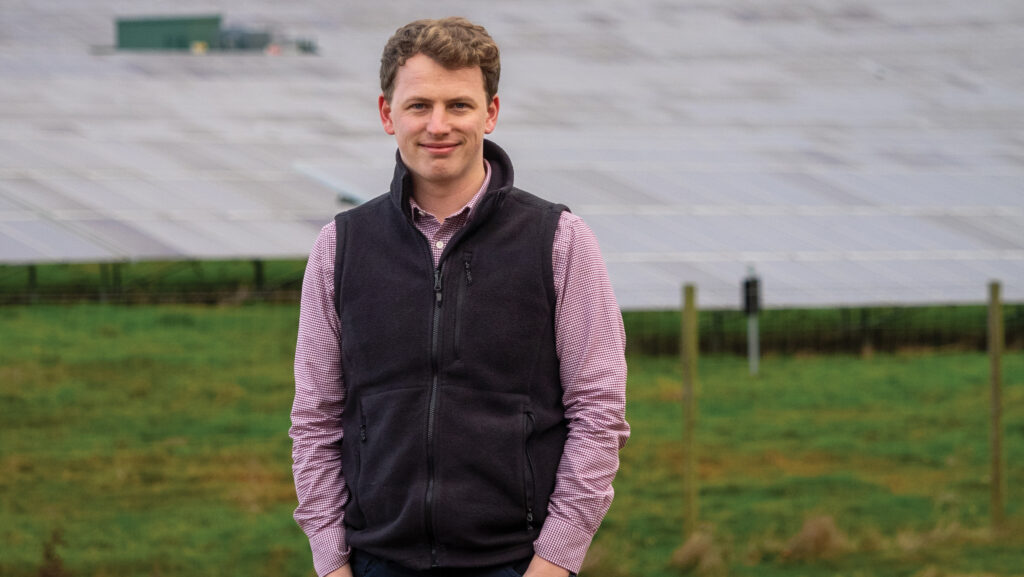Transition Farmer: Field trial results backed up by data
 Ed Shuldham © Kathy Horniblow
Ed Shuldham © Kathy Horniblow Farmers Weekly Transition Farmer Ed Shuldham has invested in agronomy data software and has begun trials on sustainable farming.
We catch up with him in Wiltshire to find out how the farm’s transition goals are progressing.
See also: All updates from Ed Shuldham
Ed Shuldham
Farm facts
JM Stratton & Co, East Farm, Wiltshire
- Farm size: 1,800ha
- Annual rainfall: 900mm
- Soil type: Light to medium chalk with clay patches
Running five-year field-scale trials on sustainable farming methods will provide data for JM Stratton & Co to achieve the “sweet spot” between high productivity and reducing inputs.
The family-run farming business is working with Hutchinsons to trial regen techniques, such as enriching chalkland arable soils with compost tea.
Making more use of data is a Transition goal and the farm is investing in the Omnia digital farming platform.
“Running these trials on a field scale, using Hutchinsons’ expertise, methodologies and the back-up of their data team, allows proper scientific research in whole fields not trial plots because plots aren’t real world,” says business development manager Ed Shuldham.
“It’s multi-year, so if we grow a bi-crop for five years or we direct drill or don’t direct drill for five years, and use an additive or not for that period, we can track differences over several years.”
Some regen techniques add cost and complexity to arable operations, but with the back-up of data, the business will better understand which to embrace, he adds.
Natural capital
The business has made progress with its natural capital objectives too, striking insetting deals with buyers to secure higher prices in return for direct drilling, growing cover crops and other sustainable techniques.
It is also engaging with buyers through membership of the Salisbury Cereals supply co-operative.
The business is in the early stages of developing a biodiversity net gain project through the farmer-owned natural capital co-op, Environmental Farmers Group, reverting arable land to calcareous flower-rich grassland habitat.
It withdrew from the Sustainable Farming Scheme (SFI) pilot to secure an actual agreement, but political ideology could see schemes capped on acreage going forward, Ed predicts.
“That would be counter-productive because if the government wants to achieve the aims of the SFI or Countryside Stewardship, larger farms are often better able to achieve these – for example we have an in-house ecologist to guide us”
Transition goal progress
Approximate percentage of progress towards completion:
- Make more use of data 100%
- Take natural capital opportunities 50%
